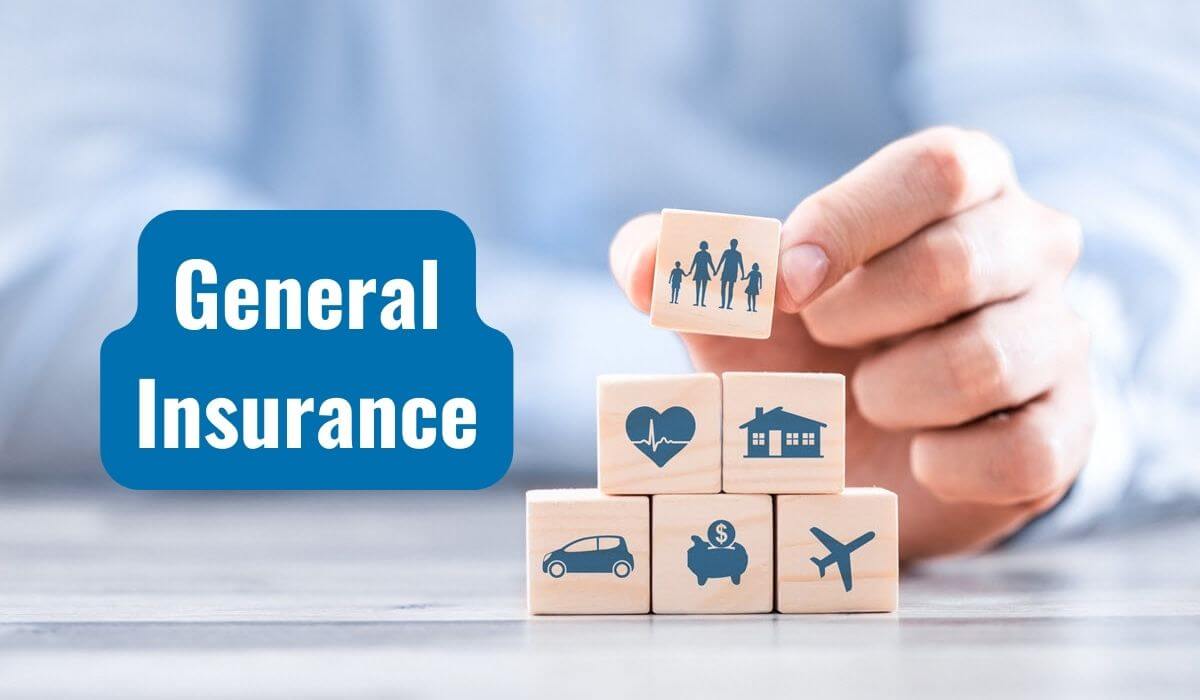What to Do After a Car Accident
After a car accident, the adrenaline is pumping, your heart is racing, and your mind is spinning. It can be difficult to think clearly and make sound decisions in the immediate aftermath of a crash. But there are certain steps you should take to protect yourself, your passengers, and your legal rights.
Stay Calm and Ensure Safety
First and foremost, stay calm and ensure your safety. If possible, pull over to a safe location, turn on your hazard lights, and check for any injuries. If you or anyone else is injured, call 911 immediately.
Once you’ve checked for injuries, take a few deep breaths to calm yourself down. It’s natural to feel shaken up after a car accident, but it’s important to stay focused and in control. This will help you make the best decisions for yourself and your passengers.
If you’re able to move around, get out of your car and check on the other driver(s) involved in the accident. If anyone needs medical attention, don’t hesitate to call 911. Even if there are no visible injuries, it’s always a good idea to get checked out by a doctor after a car accident.
Once you’ve checked on everyone’s safety, exchange information with the other driver(s) involved in the accident. This includes your name, address, phone number, insurance information, and license plate numbers. You should also take pictures of the damage to both vehicles and the accident scene.
If there are any witnesses to the accident, get their names and contact information. Witnesses can provide valuable information to the police and insurance companies later on.
Finally, report the accident to your insurance company as soon as possible. They will be able to help you file a claim and get your car repaired or replaced.
Here’s What to Do When You’re in a Car Accident
Car accidents can be frightening and overwhelming. In the aftermath of a collision, it’s natural to feel shaken and unsure of what to do next. However, it’s crucial to remain composed and take the necessary steps to protect yourself, your passengers, and other parties involved.
Check for Injuries
After an accident, the most important thing to do is to check for injuries. Examine yourself, your passengers, and the other drivers and passengers for any signs of injury. Some injuries may not be immediately apparent, so it’s important to be thorough in your assessment. If you or anyone else is experiencing any pain or discomfort, seek medical attention immediately.
Start by checking for obvious injuries, such as cuts, bruises, or broken bones. If you suspect that someone has a head injury, do not move them unless it is absolutely necessary to prevent further injury. If someone is unconscious, check for breathing and a pulse.
Even if you don’t feel any pain or discomfort after an accident, it’s still a good idea to get checked out by a doctor. Some injuries, such as whiplash, may not show up immediately.
Once you have checked for injuries, move your vehicle to a safe location if possible. This will help to prevent further accidents and allow emergency responders to access the scene.
Next, call the police to report the accident. The police will create an official report that can be helpful for insurance purposes. If there are any witnesses to the accident, be sure to get their contact information.
Once the police have arrived, you will need to exchange insurance information with the other driver(s) involved in the accident.
What to Do After a Car Accident
Imagine if you’re calmly driving home after a long day at work when suddenly, out of the blue, a reckless driver slams into your vehicle. You’re dazed, disoriented, and unsure of what to do next. Don’t panic! We’ve got your back.
Stay Calm and Composed
It’s natural to feel shaken up after a car accident. Take a deep breath, try to calm your nerves, and focus on what needs to be done. Your safety and well-being are paramount. If you’re injured, no matter how minor it may seem, seek medical attention immediately.
Exchange Information
Once you’ve checked on your safety, it’s crucial to exchange information with the other parties involved in the accident. This is vital for insurance purposes and other legal proceedings. Here’s what you need to obtain:
-
Contact Details: Get the names, addresses, phone numbers, and email addresses of all drivers and passengers involved.
-
Insurance Information: Note down the insurance company name, policy number, and expiration date for each vehicle.
-
License Numbers: Record the driver’s license numbers and expiration dates for all drivers involved.
-
Vehicle Details: Write down the make, model, license plate number, and year of manufacture for each vehicle involved.
Document the Scene
Evidence is crucial for insurance claims and potential legal disputes. Take the following steps to document the accident scene:
-
Take Photos: Using your smartphone or a camera, capture photos of the accident scene from various angles. Focus on the damage to vehicles, property, and any visible injuries.
-
Draw a Diagram: If possible, sketch a rough diagram of the accident scene, showing the positions of the vehicles, traffic signs, and any other relevant details.
-
Gather Witness Information: If there were any witnesses to the accident, obtain their contact information and brief statements.
What to Do After an Accident in a Car
After a car accident, it’s easy to feel overwhelmed and unsure of what to do next. However, staying calm and taking the right steps can make all the difference in protecting your health and your legal rights. Here’s a step-by-step guide on what to do after a car accident:
Stay Calm
It’s understandable to be shaken up after a car accident. However, it’s important to stay calm and collected. This will help you think clearly and make the best decisions for yourself and others.
Check for Injuries
First things first: check yourself for injuries. Once you’ve made sure you’re okay, check on your passengers and the other drivers involved in the accident.
Call 911
If anyone is injured, call 911 immediately. Even if the injuries seem minor, it’s always best to get medical attention checked out. The police will also need to be called to file a report.
Gather Evidence
Document the accident scene as thoroughly as possible. Take photos or videos of the damage to your car, the other vehicles involved, and any visible injuries. Also, get the names and contact information of any witnesses.
Exchange Information
Once you’ve gathered your evidence, exchange information with the other drivers involved in the accident. This includes your name, address, phone number, insurance information, and license numbers.
Report the Accident to Your Insurance Company
As soon as possible after the accident, report it to your insurance company. They will need to know the details of the accident and will help you file a claim.
Get a Copy of the Police Report
The police report will contain important information about the accident, including the names of the drivers involved, the time and location of the accident, and any citations that were issued. You can usually get a copy of the police report from the police department or online.
Hire an Attorney (Optional)
If you have been seriously injured in a car accident, you may want to consider hiring an attorney. An attorney can help you get the compensation you deserve for your injuries and damages.
What to Do After a Car Accident
After a car accident, it’s imperative to remain calm and collected, even though it can be a stressful and confusing time. There are certain steps you should follow to ensure your safety and protect your rights.
Report the Accident
Contact the police to file an accident report and inform your insurance company as soon as possible. The police report will document the details of the accident, including the time, location, vehicles involved, and any injuries. Your insurance company will need to be notified so they can initiate the claims process.
Exchange Information
Exchange contact and insurance information with the other driver(s) involved in the accident. This includes names, addresses, phone numbers, insurance company names, and policy numbers. It’s also helpful to take pictures of the damage to all vehicles involved.
Seek Medical Attention
Even if you don’t feel injured initially, it’s important to seek medical attention after an accident. Some injuries may not manifest until later, and it’s crucial to get checked out by a professional to ensure your health is not compromised.
Hire an Attorney (Optional)
In some cases, hiring an attorney may be beneficial, especially if the accident was severe, there is a dispute over fault, or you’re having trouble obtaining fair compensation from the insurance company. An attorney can represent your interests, protect your rights, and help you navigate the legal process.
Document the Event
Take detailed notes about the accident, including the time, location, weather conditions, road conditions, and any witnesses. This information can be valuable if you need to file a claim or contest the other driver’s version of events. Keep all medical bills, repair receipts, and any other documentation related to the accident.
Follow Up with Insurance Companies
Stay in regular contact with your insurance company and the other driver’s insurance company to provide updates on your condition and the status of your claim. It’s important to be persistent and follow up regularly to ensure your claim is being processed fairly and efficiently.
Take Care of Yourself
After an accident, it’s crucial to prioritize your physical and emotional well-being. Rest, eat healthily, and get enough sleep. Avoid making any major decisions or signing any documents until you have had time to recover and consult with an attorney if necessary.
What to Do After a Car Accident
You’re driving along, minding your own business, when suddenly, boom! You’re in a car accident. What do you do? Stay calm, breathe deeply, and follow these steps:
Seek Medical Attention
Even if you don’t feel any discomfort initially, it’s crucial to seek medical attention. Some injuries, like concussions, may not show symptoms right away, so it’s always better to err on the side of caution. Besides, if you don’t get checked out and later develop an injury, you may have trouble proving it was caused by the accident.
Exchange Information
Grab a pen and paper, or use your phone, to exchange the following information with the other drivers involved:
- Name
- Contact information
- Insurance information
- License plate numbers
- Make and model of the vehicles
- Date and location of the accident
Don’t forget to ask any witnesses for their contact information, too. They may be able to provide valuable information to the police and insurance companies later.
Report the Accident
Notify the police about the accident, even if it’s minor. The police report will provide an official record of what happened and help protect your interests.
Document the Damage
Take photos of the damage to both vehicles, as well as any visible injuries you or your passengers may have sustained. If possible, jot down notes about the accident, including the time, date, and location, as well as the weather conditions.
Contact Your Insurance Company
Give your insurance company a heads-up about the accident as soon as possible. They’ll be able to guide you through the claims process and help get your car repaired or replaced.
Don’t Admit Fault
It’s tempting to apologize or admit fault after an accident, but it’s best to avoid doing so. Even if you think it was your fault, let the police and insurance companies determine who was responsible. Anything you say can be used against you later.
Get Legal Advice
If you’ve been seriously injured or the other driver is disputing fault, it’s a good idea to seek legal advice. An attorney can help you protect your rights and maximize your recovery.
Additional Tips
- Stay calm and don’t panic.
- Check for injuries and provide first aid if necessary.
- Move your car to a safe location if possible.
- Cooperate with the police and be honest about what happened.
- Don’t sign anything or make any statements to the other driver’s insurance company without first speaking to your own insurance company.
- Keep a record of all expenses related to the accident, such as medical bills, car repairs, and lost wages.
What to Do After an Accident in Car
1. Stay Calm and Check for Injuries
In the aftermath of an accident, it’s crucial to stay composed and assess yourself and any other individuals involved for injuries. If possible, move vehicles to a safe location and turn on your hazard lights for visibility.
2. Call for Help
Immediately contact 911 or local emergency services. Don’t assume anyone else has made the call. Provide as much information as possible, including your location, number of people involved, and the severity of injuries.
3. Document the Accident
Take pictures of the scene, including damage to vehicles, injuries, and any other relevant details. Obtain contact information from all involved parties, including drivers, passengers, and witnesses.
4. Exchange Insurance Information
Provide your insurance information to the other driver(s) and request theirs in return. Take down their policy numbers, expiration dates, and contact details.
5. File a Police Report
File a police report, which will provide an official record of the accident and assist with insurance claims and potential legal proceedings.
6. Seek Medical Attention
Even if you don’t believe you’re injured, it’s crucial to seek medical attention after an accident. Some injuries may not be immediately apparent.
7. Hire an Attorney (Optional)
Hiring an attorney is a personal decision. If significant injuries or property damage is involved, or if dealing with insurance companies becomes complicated, an attorney can represent you, negotiate with insurers, and advocate for your rights.
Consider the following factors when deciding whether to hire an attorney:
- Complexity of the accident: If the accident was caused by multiple parties or involves serious injuries, an attorney can help navigate legal complexities.
- Insurance disputes: If the insurance company denies your claim or offers a low settlement, an attorney can represent you in negotiations.
- Going to court: If the case goes to court, an attorney can represent you and protect your interests.
In conclusion, by following these steps after an accident, you can ensure your safety, gather essential information, and protect your legal rights. If necessary, consider hiring an attorney to assist you through the process.




Leave a Reply